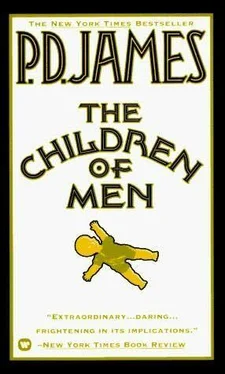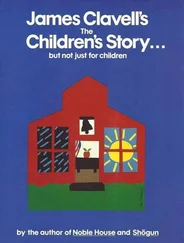“I’d rather you showed it.”
He didn’t reply to that, but watched while I humped my case on to the bed and began to unpack. My mother had bought me a new case for this first visit. Miserably aware that it was too large, too smart, too heavy, I wished that I had brought my old canvas grip. I had, of course, packed too many clothes, and the wrong clothes, but he didn’t comment, I don’t know whether out of delicacy or tact or because he simply didn’t notice. Stuffing them quickly into one of the drawers, I asked: “Isn’t it strange living here?”
“It’s inconvenient and it’s sometimes boring, but it isn’t strange. My ancestors have lived here for three hundred years.” He added: “It’s quite a small house.”
He sounded as if he was trying to put me at ease by belittling his inheritance but when I looked at him I saw, for the first time, the look that was to become familiar to me, of a secret inner amusement which reached eyes and mouth but never broke into an open smile. I didn’t know then and still don’t know how much he cared for Woolcombe. It’s still used as a nursing-and-retirement home for the privileged few—relations and friends of the Council, members of the Regional, District and Local Councils, people who are considered to have given some service to the State. Until my mother died Helena and I made our regular duty visits. I can still picture the two sisters sitting together on the terrace, well wrapped up against the chill, one with her terminal cancer, the other with her cardiac asthma and arthritis, envy and resentment forgotten as they faced the great equalizer of death. When I imagine the world without a living human being, I can picture—who doesn’t?—the great cathedrals and temples, the palaces and the castles, existing through the uninhabited centuries, the British Library, opened just before Omega, with its carefully preserved manuscripts and books which no one will ever again open or read. But at heart I am touched only by the thought of Woolcombe; the imagined smell of its musty deserted rooms, the rotting panels in the library, the ivy creeping over its crumbling walls, a wilderness of grass and weeds obscuring the gravel, the tennis court, the formal garden; by the memory of that small back bedroom, unvisited and unchanged until the coverlet rots at last, the books turn to dust and the final picture drops from the wall.
My mother had artistic pretensions. No, that is arrogant and not even true. She had no pretensions to anything except a desperate respectability. But she did have some artistic talent, although I never saw her produce an original drawing. Her hobby was painting old prints, usually Victorian scenes taken from damaged bound volumes of the Girls’ Own Paper or the Illustrated London News. I don’t suppose it was difficult, but she did it with some skill, taking care, as she told me, to get the colours historically correct, although I don’t see how she could have been sure of that. I think the nearest she got to happiness was when she was sitting at the kitchen table with her paint box and two jam jars, the angled lamp precisely focused on the print spread out on a newspaper in front of her. I used to watch her working away, the delicacy with which she dipped the finer brush into the water, the swirl of coalescing blues, yellows and whites as she mixed them on the palette. The kitchen table was large enough, if not for me to spread out all my homework, at least for me to read or write my weekly essay. I liked to look up, my brief scrutiny unresented, and watch the bright colours edging across the print, the transformation of the drab grey of the microdots into a living scene; a crowded railway terminus with bonneted women seeing off their men to the Crimean War; a Victorian family, the women in furs and bustles, decorating the church for Christmas; Queen Victoria escorted by her consort, surrounded by crinolined children, opening the Great Exhibition; boating scenes on the Isis with long-defunct college barges in the background, the moustached men in their blazers, the full-bosomed, small-waisted girls in jackets and straw hats; village churches with a straggling procession of worshippers, the squire and his lady in the foreground entering for the Easter service against a background of graves made festive with spring flowers. Perhaps it was my early fascination with these scenes which came to direct my interest as a historian to the nineteenth century, that age which now, as when I first studied it, seems like a world seen through a telescope at once so close and yet infinitely remote, fascinating in its energy, its moral seriousness, its brilliance and squalor.
My mother’s hobby was not unlucrative. She would frame the finished pictures with the help of Mr. Greenstreet, the vicar’s warden from the local church they both regularly, and I reluctantly, attended, and would sell them to antique shops. I shall never now know what part Mr. Greenstreet played in her life, apart from his neat-fingered facility with wood and glue, or might have played except for my ubiquitous presence, any more than 1 can know how much my mother was paid for the pictures and whether, as I now suspect, it was this extra income which provided me with the school trips, the cricket bats, the extra books which I was never grudged. I did my bit to contribute; it was I who found the prints. I would rummage through boxes in junk shops in Kingston and further afield on my way home from school or on Saturdays, sometimes cycling fifteen or twenty miles to a shop which yielded the best spoils. Most were cheap and I bought them from my pocket money. The best I stole, becoming adept at removing centrepieces from bound books without damage, extracting prints from their mounts and slipping them into my school atlas. I needed these acts of vandalism, as I suspect most young boys needed their minor delinquencies. I was never suspected, I the uniformed, respectful, grammar-school boy who took his lesser findings to the till and paid without hurry or apparent anxiety and who occasionally bought the cheaper second-hand books from the boxes of miscellanea outside the shop door. I enjoyed these solitary excursions, the risk, the thrill of discovering a treasure, the triumph of returning with my spoils. My mother said little except to ask what I had spent and to reimburse me. If she suspected that some of the prints were worth more than I told her I had paid, she never questioned, but I knew that she was pleased. I didn’t love her but I did steal for her. I learned early and at that kitchen table that there are ways of avoiding, without guilt, the commitments of love.
I know, or think I know, when my terror of taking responsibility for other people’s lives or happiness began, although I may be deceiving myself; I have always been clever at devising excuses for my personal shortcomings. I like to trace its roots to 1983, the year my father lost his fight against cancer of the stomach. That was how, listening to the grown-ups, I heard it described. “He’s lost his fight,” they said. And I can see now that it was a fight, carried on with some courage even if he hadn’t much option. My parents tried to spare me the worst of knowledge. “We try to keep things from the boy” was another frequently overheard phrase. But keeping things from the boy meant telling me nothing except that my father was ill, would have to see a specialist, would go into hospital for an operation, would soon be home again, would have to go back into hospital. Sometimes I wasn’t even told that; I would return from school to find him no longer there and my mother feverishly cleaning the house, with a face set like stone. Keeping things from the boy meant that I lived without siblings in an atmosphere of uncomprehended menace in which the three of us were moving inexorably forward to some unimagined disaster which, when it came, would be my fault. Children are always ready to believe that adult catastrophes are their fault. My mother never spoke the word “cancer” to me, never referred to his illness except incidentally. “Your father’s a little tired this morning.”
Читать дальше












